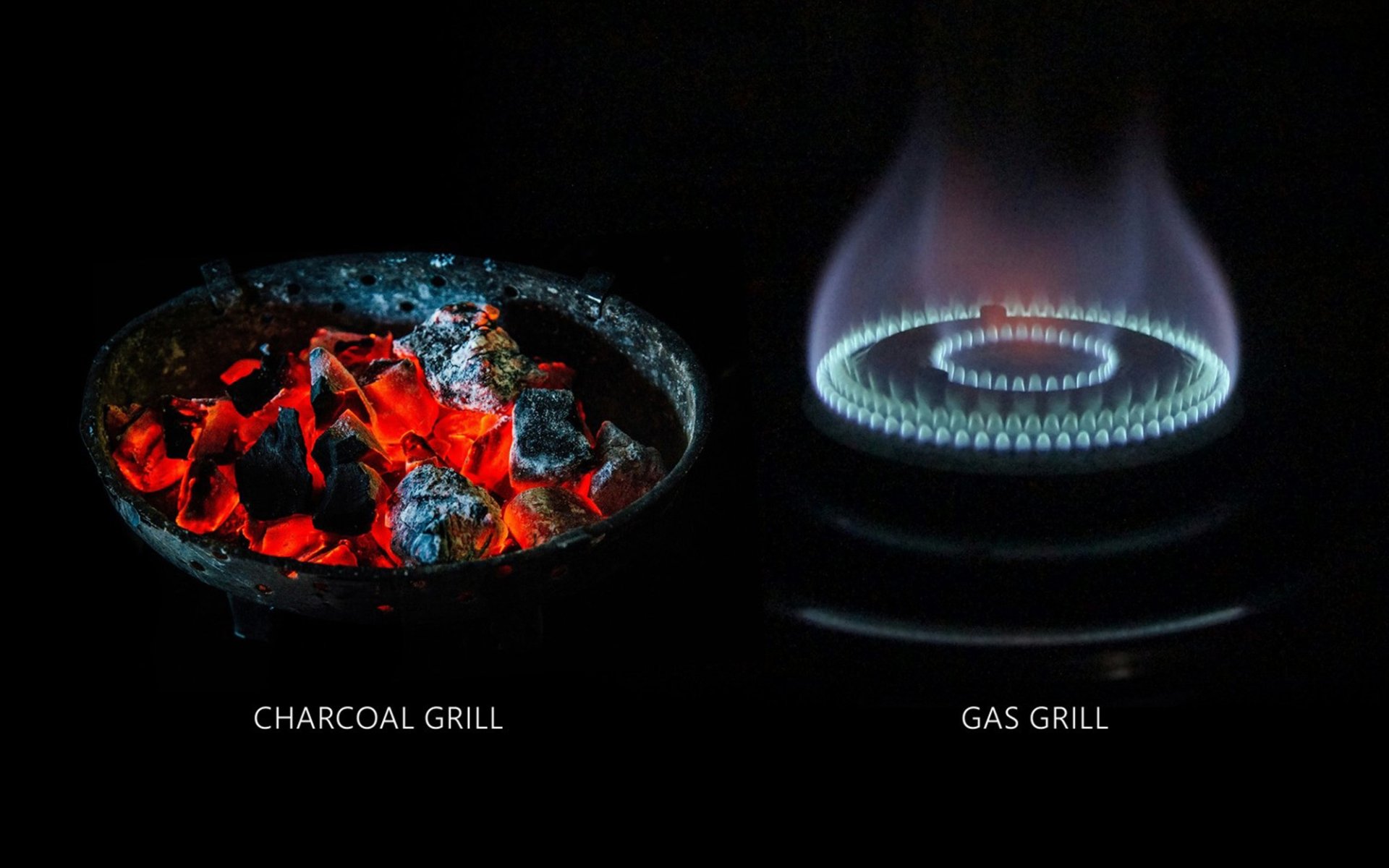Differences Between Gas and Charcoal Grills

When it comes to cooking, the debate between using gas grills and charcoal grills is a frequent one. Many have likely heard that "food cooked on a charcoal grill tastes and smells better than on a gas grill." But despite this common belief, do you know that both cooking methods actually have distinct advantages and disadvantages?
Flavor and Aroma: Charcoal's Distinct Edge
One of the key differences between gas and charcoal grills lies in the flavor and aroma of the food. Charcoal grills are renowned for imparting a smoky, appealing flavor to dishes. When charcoal ignites, it releases certain aromatic compounds that give food a distinctive taste and smell. These compounds are more prevalent in charcoal than in gas because charcoal is largely derived from burnt wood, and wood contains various chemical components.
Additionally, charcoal contains minerals that trees absorb from the soil, such as nitrogen, phosphorus, potassium, and sulfur, along with various volatile oils. When this wood is burned into charcoal and then ignited, the food cooked on a charcoal grill takes on a unique flavor and aroma.
Conversely, gas grills have a different chemical composition. When gas burns, it releases carbon dioxide, which is odorless and flavorless. Therefore, cooking on a charcoal grill typically results in a more distinctive and aromatic flavor.
You might be wondering why gas sometimes has a pungent odor. This is because some gas grills may have Mercaptan added to them as a "warning smell" in case of a gas leak. While cooking with gas, a slight odor from this substance might be present, but it's typically in very small quantities in cooking gas.
Temperature Control and Heat
Beyond flavor and aroma, temperature control is another clear distinction between gas and charcoal grills:
- Gas Grills: Feature adjustable knobs, allowing for easy and quick heat control compared to charcoal grills.
- Charcoal Grills: Require more effort to control the temperature; for example, new charcoal briquettes must be added to increase heat. It also takes longer to regulate the temperature. However, the advantage is that charcoal grills can reach significantly higher temperatures, up to 200 degrees Celsius, than gas grills.
Convenience and Cleaning
In terms of cleaning, gas grills are easier to maintain as there's no ash to dispose of. Charcoal grills require regular ash disposal and grate cleaning, making gas grills generally more convenient.
As outlined above, both gas and charcoal grills have their own pros and cons. The choice ultimately depends on the cook's preference and convenience. If you desire a smoky flavor in your food, a charcoal grill is ideal. If you prefer to avoid the smoky aroma overpowering the food's natural taste, a gas grill is the better option.
You can find all the ingredients you need for delicious meals at every Rimping Supermarket branch!


